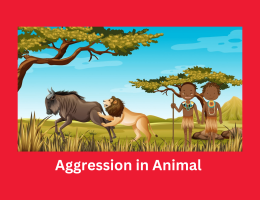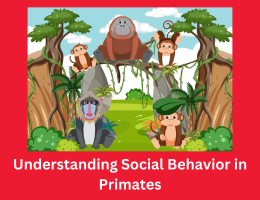
Why Do Animals Play? The Science Behind Play Behavior
- By admin --
- Saturday, 15 Jun, 2024
The sight of animals at play is a universally familiar one, whether or not it is dogs wrestling, kittens pouncing, or dolphins frolicking inside the waves. It's no longer simply restrained to younger animals both; adults of many species interact in play as properly. But what motivates these creatures to take pleasure in such conduct, and what, if any, are the blessings they derive from it?
Unraveling the motives in the back of animal play conduct opens a window into expertise animals' cognitive abilties and their evolutionary development.
What Constitutes Play?
Play, as an hobby, has been notoriously hard to outline scientifically. However, there are a few typically agreed upon traits. Animal play tends to be spontaneous, voluntary, and profitable to the animals themselves. It's regularly characterized by using exaggerated, repetitive behaviors that regularly appear purposeless or out of context. It regularly happens when animals are well-fed and no longer immediately threatened through predators, suggesting that play is probably a luxury of safety and abundance.
The Function and Benefits of Play
While play may additionally appear whimsical and with out purpose, researchers have found numerous capability advantages to this conduct that might provide an explanation for why it is so normally found in the animal nation.
1. Physical Development and Survival Skills:
Keeping your strength, agility and coordination are some of the reasons why there are physical activities such as games that involve such feats. By playing-searching, predators can learn how to survive in the future; they develop skills for this purpose.
2. Social Bonding and Hierarchies:
Some social animals may establish and strengthen their social relations by engaging in play. Equally, young people may exploit it to discover social classes so that they fit in comfortably.
3. Cognitive Development:
It's possible that play is essential for improving cognition. It promotes creativity, problem-solving skills, and learning about the physical world. Playing animals need to be able to make snap decisions and control their behavior mostly by watching what their playmates do.
The Role of Play in Animal Behavior and Evolution
The incidence and form of play behavior across such a lot of unique species recommend that it can have tremendous evolutionary importance. According to some academicians, play is probably an animal workout activity for fine-tuning survival skills. Experts say that for animals to adjust defensively to new happenings or surroundings, they may need to play more.
According to an analysis of researchers everywhere the relative importance of play in the evolution of mammals should be considered on its own terms and not merely as a byproduct of other behaviors. It's a complicated and vital thing of many animals' lives, contributing to their bodily, social, and cognitive development.
Recap
The study of play behavior in animals is very interesting because it sheds light on social organization, evolutionary psychology, and cognitive ability in other species. Even though it is hard to measure play(let alone define it), research indicates numerous advantages as well as its significance among animals. Though there are still many unanswered concerns, it is evident that play is an essential component of existence for many species not simply a delightful pastime, but also a vital component of their growth and survival.





